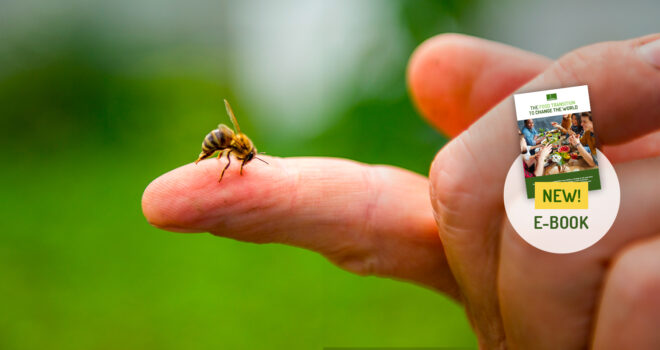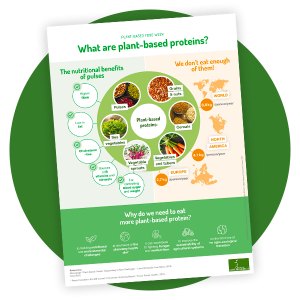Biodiversity is a major issue in our society today. Aquatic and terrestrial life are essential to human life. We call on you to act on a personal level, by embracing the food transition. We will tell you how!
Sustainable Development Week aims to raise awareness among each and every one of us and to contribute to the transition towards a better, long-term protection of society. The Sustainable Development Goals established by the United Nations include life on land and life under water. These are issues for which we must act together, on a large and small scale.
What is biodiversity?
Biodiversity refers to all living beings and the ecosystems in which they live. In particular, it represents the interaction between living organisms and their natural environment, a dynamic that is essential for the survival of the planet. Five major factors influence biological diversity:
- The transformation of natural environments into artificial environments.
- Air, soil, land and water pollution, as well as light and sound pollution.
- Over-exploitation of resources.
- Climate change.
- The (in)voluntary introduction of invasive alien species by humans.
Saving biodiversity begins at home!
Nature is essential to humanity. But human activity has taken over and it is altering nature, both on land and below water, by encroaching on and polluting the space reserved for fauna and flora. The fight against climate change and against the erosion of biodiversity are inextricably linked.
Choosing a sustainable diet is critical. We can thus minimise the impact of our food on the planet. To do so, we can do the following in our everyday lives:
- Adopt a diet richer in plant-based proteins (vegetables, fruit, whole grains and pulses).
- Limit our consumption of meat, wild fish, sugary soft drinks and processed food.
- Reduce food loss and waste.
- Opt for products from a more sustainable agriculture.
Read also: A plant-based diet reduces our ecological footprint
More and more producers and distributors now offer environmental labelling on their products. This eco-score has two objectives: to guide you in buying products with a low environmental impact, and to encourage manufacturers to make their products more environmentally friendly. So, make sure you read the labels!

Source : https://docs.score-environnemental.com/
Some tips to avoid food waste
The production and disposal of food that will never be consumed uses up resources (energy, agricultural land, water). Food waste has harmful yet avoidable consequences on the environment and biodiversity. Here’s some advice on how you can avoid it!
Discover our infographic : How to reduce food waste?
- Start off with your shopping:
- Only buy what you really need.
- Avoid pre-packaged produce.
- Plan your menus.
- Smart storage: put recently purchased products behind older ones to make sure you use them up first.
- Use your leftovers the next day.
- Measure out your portions before cooking.
- Share your leftovers with friends or store them in the freezer.
- Read our e-book for more advice!
Reference: United Nations, www.un.org, sustainable development, consulted in August 2021. https://www.un.org/sustainabledevelopment/



 Turnip
Turnip  Ginger
Ginger  Plant Diseases, Garden Pests, and Possible Treatments
Plant Diseases, Garden Pests, and Possible Treatments 













